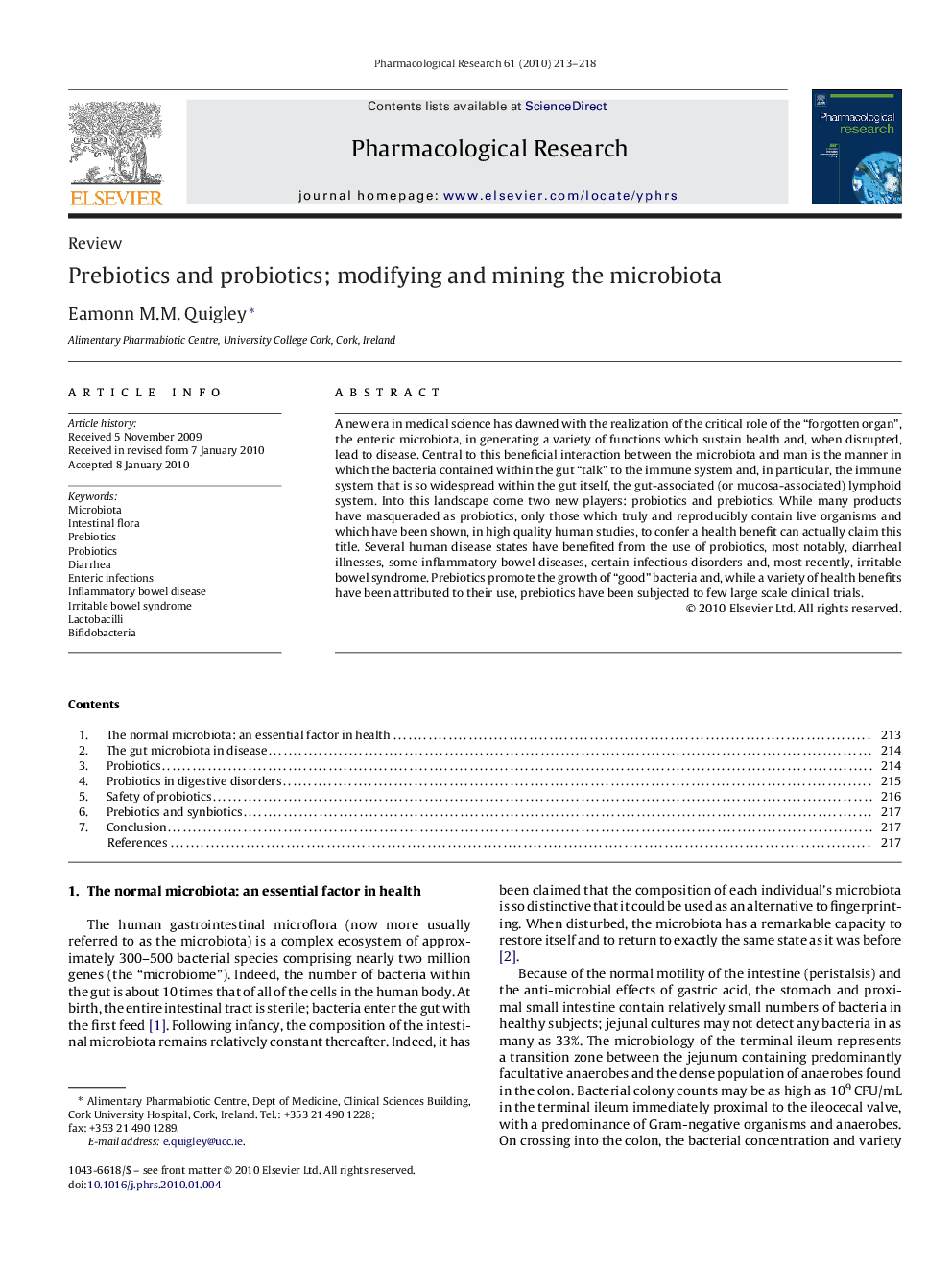| Article ID | Journal | Published Year | Pages | File Type |
|---|---|---|---|---|
| 2562502 | Pharmacological Research | 2010 | 6 Pages |
A new era in medical science has dawned with the realization of the critical role of the “forgotten organ”, the enteric microbiota, in generating a variety of functions which sustain health and, when disrupted, lead to disease. Central to this beneficial interaction between the microbiota and man is the manner in which the bacteria contained within the gut “talk” to the immune system and, in particular, the immune system that is so widespread within the gut itself, the gut-associated (or mucosa-associated) lymphoid system. Into this landscape come two new players: probiotics and prebiotics. While many products have masqueraded as probiotics, only those which truly and reproducibly contain live organisms and which have been shown, in high quality human studies, to confer a health benefit can actually claim this title. Several human disease states have benefited from the use of probiotics, most notably, diarrheal illnesses, some inflammatory bowel diseases, certain infectious disorders and, most recently, irritable bowel syndrome. Prebiotics promote the growth of “good” bacteria and, while a variety of health benefits have been attributed to their use, prebiotics have been subjected to few large scale clinical trials.
Graphical abstractFigure optionsDownload full-size imageDownload as PowerPoint slide
